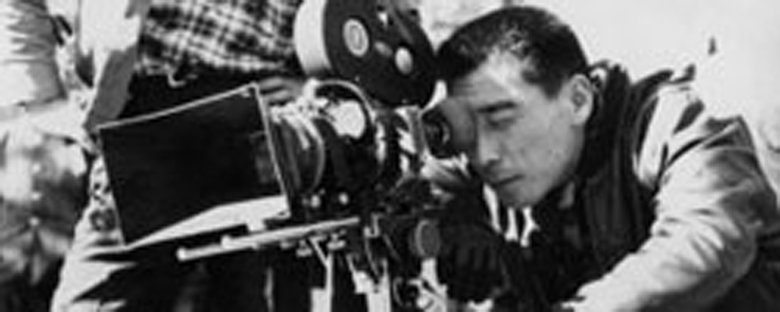Reviews
Kwiro
Lee Man-hee
Korea, 1967
Credits
Review by Jenny Jediny
Posted on 07 September 2006
Source VHS screener
Related articles
Features: The New York Korean Film Festival
With the increasing popularity of Korean cinema in the past decade, it has not only become easier for North American audiences to view current Korean films in distribution, but also revisit a previously inaccessible cinematic history. The keynote in this year’s New York Korean Film Festival, Lee Man-hee is a part of this “rediscovered” history, a maverick director noted for his passionate devotion to cinema, as well as his eclectic filmmaking choices ranging from melodramas to suspenseful Hitchcockian thrillers. In the majority of his films, however, Lee demonstrates a consistent concern for a changing nation; working primarily after the Korean War, Lee’s films intelligently observe and subtly comment on the difficulties faced by a post-war nation. Completing fifty films in the short span of fourteen years, Lee is a fascinating auteur whose career warrants its own retrospective.
Repeatedly throughout A Road to Return, we witness the wife returning home to her disabled husband, paralyzed from his service in the Korean War. Indicative of the time period, Kim Jin-gyu’s portrayal of the wife is submissive, as she dutifully minds her husband, and professes only devotion despite his fits of rage, when he painfully insists that she leave him for her own benefit, although he contradicts himself in his work; a writer, he constructs a plotline eerily similar to his own life, complete with the acquiescent wife. She commutes back and forth to the urban center of Seoul to bring his manuscripts to a publisher, where she encounters a younger man who is instantly smitten, creating a relationship that eventually hinges on her choice between her marriage and newfound passion. This tension, mirroring the strain between tradition and modernity, already felt in waves in post-war Korea, is skillfully embedded in A Road to Return’s lead character, whose mental and spiritual anguish forms the crux of emotion in Lee’s film.
Persistently languid in its pacing, A Road to Return patiently builds up emotional tension in a style reminiscent of Alain Resnais, or more recently, Wong Kar-wai. Lee separates the wife’s increasingly dual world by emphasizing the elegant, traditional aspects of her home in the country against the modern trappings of the urban center, where she meets the young man in train stations and at lounges he deems created solely for lovers, where they soulfully contemplate one another. Kim Jin-gyu, whose uncertainty (particularly in a departure scene at the train station) vaguely recalls the lovelorn wife in David Lean’s Brief Encounter, appears genuinely torn, struggling to resolve the emotional conflict that has made an unwelcome entrance in her quiet life. Honor, combined with an ingrained sense of moral values, bind her to her husband, and she can forego this commitment neither mentally nor physically, even when begged by her sister-in-law to request a divorce for her husband’s sake, if not her own.
When the wife finally relents to her own desires, it results in a state of what appears to be severe emotional paralysis, beautifully expressed in a final image of the wife sitting motionless in her bedroom while her lover remains on the telephone line, anxiously waiting for her. Lee Man-hee’s film is a small masterpiece, subtly suggesting the pain and distress of post-war Korea through a woman trapped not so much by her physical surroundings as by the impenetrable boundaries of her mind.
We don’t do comments anymore, but you may contact us here or find us on Twitter or Facebook.



